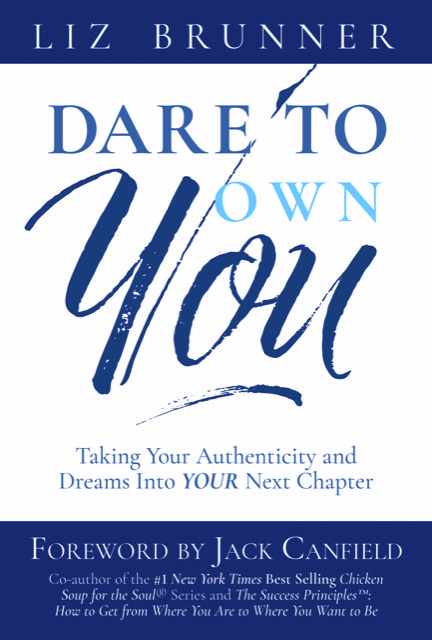My heart was pounding so hard, it felt like it was going to jump out of my chest! It was 3:30 PM on Wednesday afternoon. Our news director was about to explain why he’d called the entire staff together for an important announcement.
Journalists are by nature a curious bunch! When the email went out asking the team to be present the next day for the meeting, of course, everyone was speculating. Although I’d been working behind the scenes with management on when my departure from WCVB would take place and how it would be announced, it was not public knowledge. What could it possibly be? My answer when asked? “It could be anything.” I didn’t want to lie.
As we all gathered, I wondered to myself, Does anyone notice that I am the only anxious person in the room? Who knew that it would be hardest to share my news with THIS group of people?
Our news director launched into his remarks, saying it’s a sad day at NewsCenter 5 for they are about to lose someone who had been on every show at Channel 5 over the course of the past twenty years.
As he announced my name, I stood up from my chair, almost oblivious to the applause, and then I had this ah-ha moment. It suddenly occurred to me, This is how most people feel when they get up in front of a group of people and need to speak!
My heart was beating so fast, I thought I couldn’t breathe… I felt the beads of perspiration on my forehead and hoped they didn’t show… And in a nanosecond, questions filled my head. Will I say the right thing? Will the words even come out of my mouth? Will I feel or look like a fool? Am I making the biggest mistake of my life?
The truth was by making it public knowledge I was about to leave, reality was setting in, and I was petrified! No turning back now.
I had to find my voice.
In that very instant, I realized I needed to rely on everything I’d learned in my nearly three decades of being on TV and in the public eye, which was exactly what I would be teaching my clients how to deal with at Brunner Communications. I knew I could and wanted to help others find their voice. Not only their “speaking voice,” but their own authentic, inner voice.
I grew up in what I would describe as a very traditional, somewhat old-fashioned model of family where the man, the father, was the head of the household, no questions asked. As strong a woman as my mother was, given her own similar upbringing, Dad was the voice in our home. I often felt as if I couldn’t express my authentic, inner voice.
Over the years, that resulted in my dad and me being like oil and water. We were often at odds over anything and everything. I remember one day being so angry about something—I have no recall of what today—but I remember the overwhelming, powerful feeling. I was on the floor of my bedroom, sobbing my eyes out because whatever it was that I wanted to say I felt I was absolutely not allowed to do so. I didn’t have a voice or know how to use it. I couldn’t speak my truth.
The only way I was able to express myself was with tears, which were often misunderstood. I simply didn’t know how to speak my truth, or I was too afraid to do so. I’d be screaming on the inside when I wanted to be screaming on the outside.
I didn’t own my own voice, nor did I feel I was allowed to ever express or use my voice.
In many respects, I carried that limiting belief unknowingly into every area of my life, personally and professionally. It resulted, at times, in not knowing how to stand up for myself. All because I felt paralyzed on some unconscious level. There was a disconnect between my inner authentic voice and my outer voice. I feel like it’s taken me years, and many therapy sessions, to break this pattern.
Limiting beliefs are thoughts and feelings we carry with us from our life experiences. Some of them may develop during our childhood or possibly from a traumatic experience. They are often assumptions we make about ourselves that we come to believe as fact, but they may have absolutely zero truth to them.
If limiting beliefs get stuck in our psyche, they can impact our lives in negative ways. They can stop us from achieving more of what we are capable of, whether personally or professionally.
One of my Houston clients was really struggling with delivering presentations. He wanted to be more dynamic, engaging, commanding, and confident. In truth, what he was really asking for was how could he find his own authentic voice.
During our first session, I discovered several things that were hindering him from all of that and more. For one, he did virtually no preparation for any of his presentations. He chose to wing them every single time.
Perhaps more importantly was this: He was a CPA, and yet he admitted to not enjoying being an accountant! Growing up, his dream was to build houses. But that was not an acceptable profession by his family’s standards. He never allowed himself to express that desire. He became disconnected from his own authentic voice. And now, in a profession he really didn’t want to be in, that limiting belief, that disconnect, was manifesting in not being a good public speaker. I think this was a form of unconscious self-sabotage because he really didn’t want to be an accountant! And what better way to not be a successful presenter, public speaker, than by matching his inner belief with his outer experience.
I knew we had to find a way to minimize, or get rid of entirely, this unconscious belief that somehow he wasn’t a good speaker. In truth, he wasn’t as bad as he thought he was and wasn’t giving himself enough credit for what he was doing well.
Was there work to do to get him to another level when it came to his presentations? Absolutely, yes! Starting with being prepared and putting his message, his story, together in an interesting, compelling way, and practicing. He needed to incorporate Liz’s 4 Cs:
● Be confident.
● Know your content.
● Have clarity of your content. In other words, can everyone understand your message?
● Deliver it in a conversational way.
By the end of our engagement, he had made major strides. He even admitted that maybe being an accountant wasn’t so bad after all.
Perhaps you too may have an old belief that hinders you from believing that you have a voice worth finding, owning, and being heard. Perhaps you’re afraid to use your own voice because you want to fit in or to please others—or even worse, you fear being rejected. It takes heart. It takes courage to find one’s voice and own it.



